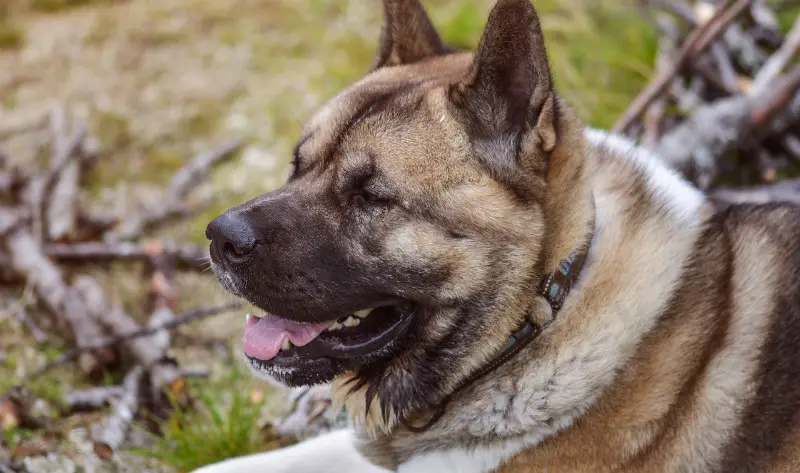Table of Contents
Dogs aren’t made equal, especially on their temperament and behavior. Some are more difficult to raise due to their neurotic tendencies. Still, with proper training, even the most neurotic dog breeds will yield and become well-rounded canines.
If you’re planning to get a new dog, make sure that you keep watch of these breeds. They are amazing pets, but they may need extra care and patience.
What is a neurotic dog breed?
When we talk about neurotic dog breeds, we are referring to canines that have intense sensitivity level. These breeds are also prone to separation anxiety and other extreme behaviors. If not addressed early on, it could lead to aggression.
Due to this bold personality, neurotic dog breeds are difficult to raise. They need an experienced owner who can be a step ahead of their bad habits. Also, these breeds require more patience in the training department.
Most dogs with a neurotic tendency have hunting instincts which could get in the way of their training.
In addition, these breeds may react intensely over various stimuli. The presence of a stranger, another dog, or a child could trigger overexcitement or even aggression. If left alone, neurotic dog breeds will become destructive and noisy.
8 Neurotic Dog Breeds
1. Border Collie

Border Collies are high-energy canines and known to be one of the most intelligent as well. However, their hard-wired prey drive and intense energy level may result in harsh reactions when exposed to various stimuli.
Also, Border Collies are known for their intolerance to isolation. If you lock them inside the house for long, they will be destructive. As herding dogs, they need to stay busy with a certain task, which not all pet owners could give.
In addition, Border Collies don’t always thrive in the presence of other dogs. If you are to get this breed, it’s best to keep it in a single dog household. Also, you should have a large yard where they can run and play. Otherwise, this doggo will vent its energy on chewing things in your home.
2. Pit Bull Terrier
Contrary to stereotypes, Pit Bull Terriers aren’t always vicious. Responsibly bred and raised Pitties will become affectionate pets and companions for kids. However, their muscular and strong bodies could topple a toddler when playtime gets ruff.
Also, Pit Bulls have a bad case of separation anxiety. Their high tendency to mouth things paired with a strong jaw makes them a destructive dog if left alone for long. Also, they can give a fit of barking and howling if left without a companion.
Moreover, Pit Bulls are energetic dogs that always need to get exercise. If not, their muscles will dwindle, which will result in poor health.
Nevertheless, Pit Bulls are intelligent dogs and are easy to train. They only need experienced handlers to dampen their aggressive tendencies, destructive chewing, and other negative behavior.
3. Akita

The dogs of Feudal Japan – Akitas are far from lapdogs. They used to be hunting and tracking dogs, which is why they can be stubborn at times. Also, this breed doesn’t always receive guests fondly. This can be traced back to their guarding job as royalty dogs.
Akitas don’t tolerate being alone for long and they also tend to have increased sensitivity. If trained well, they can be affectionate to their masters, but don’t expect these dogs to be cuddly. Also, they aren’t the best pet choice if you have a child or other dogs in the household.
In addition, these dogs don’t suit novice owners. They are a pain to groom since they drool a lot and shed heavily.
You also have to be patient since this breed is always vocal and can be escape artists.
4. Chow Chow
Don’t be fooled by their cute and teddy bear looks. Chow Chow dogs aren’t for the faint of heart. This is an independent dog with a proud disposition and an intense sense of self-worth. Unlike other dog breeds listed here, Chow Chows prefer being alone and they are far from being cuddly or affectionate.
Training Chow Chows are a pain since they aren’t one of the brightest breeds. Aside from that, they are not affectionate canines, so you should refrain from getting this breed if you want a doggo you can hug. Chow Chows may act aggressively with kids, other dogs, and strangers.
Also, Chow Chows require intense socialization to hamper any aggressive tendencies. You should also remember that this breed has poor peripheral vision. To avoid surprising them, it’s best to approach them from the front.
Fun fact: Chow Chows have black tongues!
5. Beagle
Beagles are known for two things: their lively disposition and their affinity for howling. This is a happy-go-lucky dog that needs a firm hand to stay disciplined. Although small, they are hardy dogs that aren’t usually prone to sickness.
Beagles are intelligent, but they aren’t the easiest to train. Their intense energy level, sniffing habits, prey drive, and urge to wander will always get in the way. This is why you need to take more time in training a Beagle than how you’d do with other canines.
Although Beagles aren’t known chewers, they love digging, especially under the fence which they use for escaping. They will do this, especially if they got hooked to a smell.
You also have to watch out since Beagles have a voracious appetite. This is why they are prone to obesity.
6. Harrier

Some pet owners jokingly call this breed as “Beagles on steroids” as they look like large versions of the small Beagle breed. Nowadays, Harriers aren’t popular pets due to their challenging personality.
Harrier dogs aren’t easy to train, plus they have a hard-wired prey drive that makes them wanderers and barkers. The good thing with this breed, though, is they have more tolerance to being left alone.
Just like Beagles, Harriers are energetic and always on the run. If you’re planning to own this breed, don’t expect them to thrive in an apartment.
Harrier dogs can be affectionate dogs even to kids with proper training. But since they are also scent hounds, training will be a challenge as you’ll be going against their sniffing habits.
Take note that Harrier dogs are notorious droolers and they also tend to shed a lot.
7. Finnish Spitz
Finnish Spitz dogs are talkative companions as they were trained to bark when they found something during hunting. With their former post as hunting dogs, they are naturally energetic and have a strong wanderlust tendency.
Moreover, Finnish Spitz dogs like to romp around and they like being busy with tasks. Also, this breed isn’t for owners who are usually away as they don’t tolerate being alone.
This breed is intelligent and highly trainable. They can also be as friendly and affectionate as Labrador Retrievers if trained and domesticated properly. However, they tend to be aloof and suspicious of strangers and they will surely bark if someone they don’t know enters the door.
If you want to dampen their excessive barking, you have to train them early. Also, you have to socialize and introduce them to other dogs so they won’t become territorial in a multi-dog household.
8. Jack Russell Terrier
Most small breeds are usually perfect for novice owners, but the Jack Russell Terrier is an exception. This feisty ball of energy has a strong prey drive, chewing habits, and wanderlust. They also love barking, which is why their presence is always felt.
Their lively and affectionate attitude might be attractive, but they aren’t for novice dog owners. They have intense energy and exercise needs that if not satisfied, will lead to destructive behavior.
Also, you have to be careful because adult Jack Russell Terrier dogs could be aggressive around other dogs. Socialization and training at an early age are crucial to hinder these negative predispositions.
Take note that Jack Russell Terriers are master jumpers. Some of them can jump as high as five feet and they will surely lunge into someone when they want to do so.
Final words
These neurotic dog breeds require more patience and an owner who can be ahead of the doggos’ strong will. With early training and socialization, these canines can be amazing pets and companions. Still, you have to factor in the temperament and varying personalities of each breed.
What do you think of this list? Are you planning to own any of these canines? Share your thoughts with us below!
